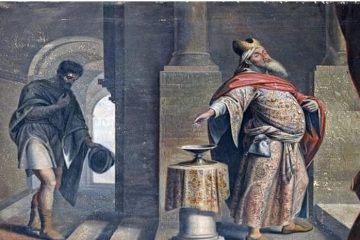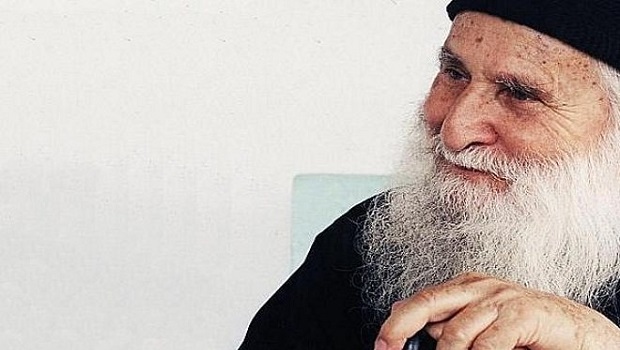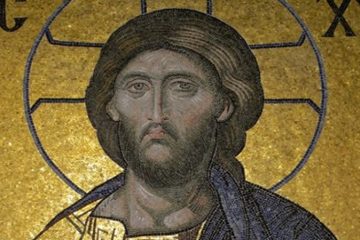Archimandrite Varnavas Lambropoulos
This year, the Sunday after Theophany coincides with the handing-back of the feast. ‘The Saviour has appeared, Grace and Truth’. The Saviour has appeared, about Whom the prophets spoke in preparation for His coming. The greatest of the prophets, the Honourable Forerunner, who was granted the task of baptizing ‘Him who was foretold’, has affirmed to us that He Whom he baptized is the Son of God. John is now going to seal with his blood the truth of his testimony and his uncompromising struggle against every kind of lie.
The Judge and Competitor
The baton now passes to the Judge, Who ‘came out conquering and to conquer’ (Rev. 6, 2), in precisely this contest between the truth and lies, between the light and darkness. And Christ begins His task in Galilee, the area which was in the deepest darkness of all the Jewish regions, because of pagan Gentiles who lived there. The Prophet Isaiah had foretold that Christ would begin His preaching ministry there, among a people dwelling in darkness and in the shadow of death.
In the end, darkness and death are the same thing. There can’t be real life without real light. And in this shadow of death, there can’t be any forward motion, movement or progress. They weren’t moving in the darkness; they were sitting in it, as Saint John Chrysostom notes. This indicates that they had no hope of being set free from the darkness. Saint John adds that, unable to see where to walk, they’d been overcome by the darkness. There can be no worse plight for a person than to allow the darkness to take over his or her heart.
In the midst of this people, which was plunged into such deep darkness that it had no hope, there arose the sun, Christ. They didn’t ask for this. He Himself appeared to them, as Chrysostom again explains. Saint Theophylact of Bulgaria puts it even more strongly: The Light of Christ almost harried them. He ‘harassed’ them with His Love.
Requirements for Illumination
But this ‘harassment’, this harrying in no way affected their freedom. The Light of Christ isn’t an imposition, forced upon us by propaganda or brainwashing. It’s a discreet call to repentance, a sweet awakening into participation in a life that’s royal.
And Christ’s first sermon wasn’t anything radically new. It was exactly the same as that of the Forerunner: ‘Repent, for the kingdom of heaven is at hand’. Until then, it had been preached by the friend of the Bridegroom (Jn. 3, 29). Now it was being preached by the Bridegroom Himself. Now it was being preached by the King of Heaven Himself. ‘I’m here’, He says. ‘Now I’m so close to you. Stretch out your hand and touch me. I’ve come to dispel the darkness. Enthrone me in your heart. I am the Light of the world. Let me be you King. Let me be your liberator from the tyranny of the darkness. I’ve come not to exercise power over you, but to make you regents and co-heirs to my kingdom. I’m your bridegroom. I’m laying siege to your heart with my love. I’m no oppressor’.
Does the Light Liberate or Enslave?
Unfortunately, many people- maybe even we ourselves- prefer darkness to the light. Feeling comfortable with wicked deeds, with the deeds of darkness, doesn’t just prevent us from loving the light, but makes us fear it, as well. Sometimes even to hate it. Because then we, like Cavafis, feel the Light as a new tyranny. This is what he says in his poem ‘The Windows’. Living in the darkness of his passions, on the one hand he seeks windows onto the light, but, on the other, he trembles at the prospect of finding them: ‘But the windows are nowhere to be found; or I can’t find them. Perhaps it’s better if I don’t. The light may be a new tyranny. Who knows what new things it might reveal?’
The poetess Maria Polydouri has the same distaste for light. She also sees light as tyranny. In one of her poems she says: ‘Oh, turn that light down. Take the light away. It’s just a protraction. What use is it at night which I want for myself? The day’s gone. That’s enough. Take the light. It’s oppressing me. The deception of a life is sufficient. It’s denying me my soul’.
The light of Christ doesn’t deny at all; it actually ‘returns my soul’ to me (Ps. 22, 3). It gives it back its lost life and strength. Blessed are they who see Christ’s invitation to repentance as the opening of a window onto the true Light, as a foray into the ‘freedom of the glory of the children of God (Rom. 8, 21).
Source: pemptousia.com




0 Comments